As a presenter on C“óĻó“«Ć½ās Newsround, DeāGraft Mensah has a big responsibility: bringing the news to hundreds of thousands of children and young people across the UK.
To mark Black History Month, we spoke to DeāGraft about his familyās Ghanaian heritage, how much it has influenced his own life and career, and how, when the cameras roll on every bulletin, he feels he also has another big job.
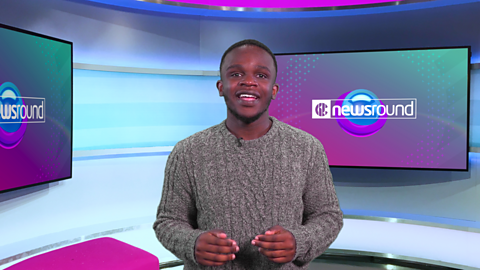
From Ghana to Milton Keynes
DeāGraftās parents are both from Ghana, although they met in the UK after taking the separate decisions to leave their respective villages and explore the opportunities Britain had to offer.
His mum arrived in London with other family members, while his dad arrived in the capital at around the same time. By the time DeāGraft was born, his parents had seen adverts tempting people to move away from busy London to nearby Milton Keynes, deciding to settle there instead. During his childhood, he first became aware of his African roots and Ghanaian traditions.
āThereās one [tradition] where you canāt give somebody something with your left hand,ā he said. āWhen I was growing up, my mum would ask me to pass her something, Iād pass with my left and sheād say no, I needed to give it with my right hand. In Ghana (passing something with your left hand) is seen as a rude thing to do. It was just little stuff like that.ā
Ghanaian life in the UK
As well as having traditional Ghanaian dishes for tea, such as Jollof rice and fufu (a small dough-like ball which is often dipped in soup), another aspect of West African life DeāGraft grew up with was to call adult family friends āuncleā and āauntieā. It led to a small problem while at school.
He said: āThere was a guy I called uncle who then became a teacher at one of my schools. So then, I thought, do I call you by your name or do I call you uncle? I went to a secondary school where we called teachers by their first names and I thought, if I call you āuncleā, Iām going to be mocked by the whole class!ā
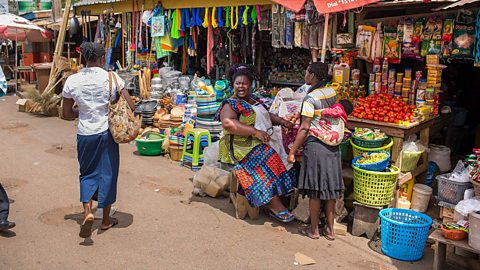
DeāGraft admits feeling conflicted over his identity while growing up. At school and everywhere else, he was British, but once home there would be Ghanaian food, Ghanaian music and the language was spoken: āI feel that as Iāve grown older, Iāve sort-of said āIām British and Iām Ghanaian.
"I remember I was talking to my uni friends about it and they were like, āyou canāt consider yourself as Ghanaian because youāve only been there onceā, but for me, Iāve grown up in the culture. Whenever the World Cup is on and Ghana is playing, Iāve always supported them. I definitely feel that connection.ā
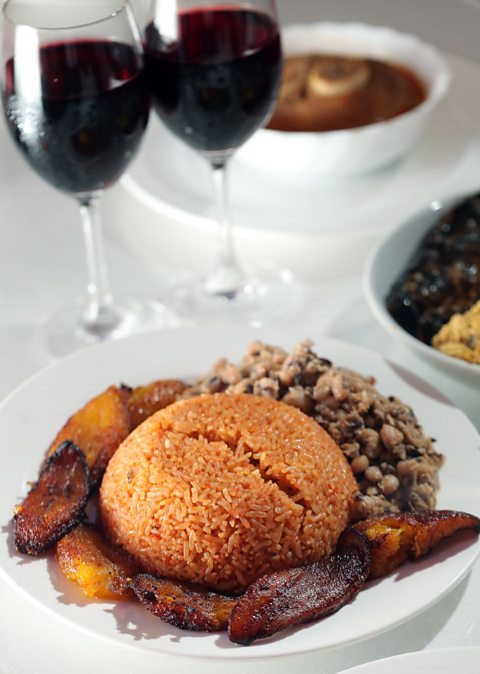
'Where is home?'
Although English is Ghanaās first language, there are more than 10 varieties of traditional language, with Akan being the most widely spoken.
While his mum encouraged him to pick up his familyās Ghanaian tongue, as a kid DeāGraft didnāt want to. He admits he regrets it: āNow, when I speak to my mumās mum over the phone, she canāt speak English, so I have to have one of my cousins to translate. It isnāt great because I want to have a chat with my grandmother, but I canāt. There are certain elements where I wish I could be a better Ghanaian!ā
While visiting Ghana as a schoolboy, DeāGraft was told by other children that he āwasnāt Africanā as his mannerisms were different to those who had always lived in the country.
It was a moment where he admitted to having a bit of an identity crisis as: āI remember thinking that was weird. In England, there are bound to be people who would see me as ānot belonging hereā and in Ghana there were people saying that I didnāt belong here either. So where do I actually belong? Where is home?ā

Learning from your elders
Now aged 23, DeāGraft considers the UK home, but Ghana is another place that could share the title. It is, after all, the country which has played a major role in raising him. He remains grateful for this parentsā strict approach to his education and respect for elders, another aspect of their Ghanaian life they made sure was passed down. Heās keen the younger members in the family understand its importance, to make sure they get the best start in life too.
It certainly helped DeāGraft carve a sought-after role in the media, plus heās also aware of the responsibility that comes with it.
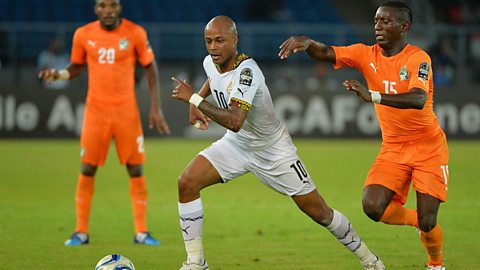
When talking about his role, DeāGraft tells us the thing he loves the most is that audiences might go from seeing his colleague Rhys Stephenson, one of the C“óĻó“«Ć½ HQ presenters, to him on Newsround: āIf I was a young black boy watching, Iād think there were loads of black people on TV. As much as I want to be a face for everyone, I definitely want younger black boys and girls to look and say, oh, thereās a black person who sounds and looks just like me,ā he says.
āIāve always said I want to be someone that other young black people can look up to,ā he said. āI remember on TV when I was growing up, there werenāt many young black faces at all. There was Reggie Yates, Lizo on Newsround, Angelica Bell and a few others. Growing up being black now, youāve got so much in front of you. It still could be a lot better.ā
Who was Nelson Mandela?
KS1 History
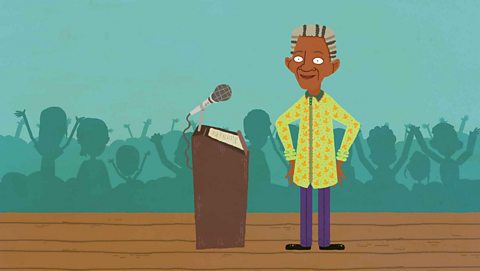
Africa - Nigeria
KS1 Geography
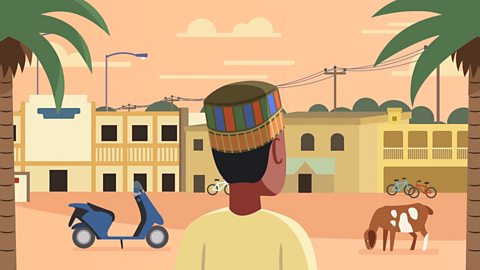
The Great British Motorways Quiz
If you've ever been stuck on one, we hope you were taking notes.
